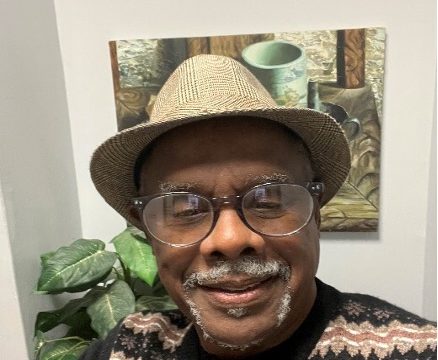

I often write stories about history makers, living or no longer living, most recently the still living Diane Nash who resides in Tennessee. But by stroke of luck, or divine intervention she might say, I found myself sitting across the desk from a living history maker right around the corner, Douglas County Magistrate Judge Barbara Caldwell.
With full knowledge that it was a long shot to get an interview given her busy court schedule, I reached out to Judge Caldwell anyway figuring that it could be weeks or months (if at all) before I could get some time with her. But I was astonished to hear from her assistant that she could meet me two days later.
Although I met her at a recent luncheon, I knew little about Judge Caldwell which prompted me to research her background in preparation for our meeting. That’s when I discovered that a book, “All Rise, A Conversation with Judge Barbara Caldwell” was published in 2007. I ordered the book realizing that there was little chance of getting and reading it before our meeting.
Like the experiences reported by the authors of her book, my connection with Judge Caldwell was instantaneous. She’s that captivating, that interesting, that engaging and caught me off guard with this breath-taker before I took a seat:
“I’m privileged to meet you Mr. Terry Howard and want you to know that I enjoy reading your articles in the Douglas County Sentinel.” I suddenly suffered a loss for words.
Born and raised in Douglas County, Caldwell shared that her work ethic took shape in the fields in the county at an early age. “I remember that we got up early to go to the fields,” she said in a 2010 newspaper article. “We would pick cotton, beans, pull corn and pick peas.” An interesting and likely little-known fact about Caldwell is that her brother Terry Harper played in the Major Leagues for seven years with the Atlanta Braves, Pittsburg Pirates and Detroit Tigers.
As someone who always loved education, Caldwell received her undergraduate degree from Morris Brown University and a master’s degree from the University of Georgia before embarking on a teaching career at Douglas County Jr. High School.
Another first thing that’s apparent about Judge Caldwell is that she’s not shy about her Christianity. When asked about the book that had the biggest impact on her she smiled, leaned over and gently patted the open Bible on her desk. The image of the shelf behind her stacked with law books while the Bible was within easy reach on her desk did not escape my notice.
I asked Douglas County’s first African American female judge why she chose law as a profession.
“Actually, I didn’t really choose to become a Magistrate Judge. In a way it chose me. I taught school then worked at Commercial Bank before I was recommended to fill a job as Magistrate Judge in 1984. Two weeks after being appointed I was on the bench. That blessed me with an opportunity to steer people down a positive path.”
Given the recent rashes of shootings and violence I asked how she is able to set aside empathy and remain objective when ruling on cases, from the Black community in particular.
“Well, it has always been heart wrenching for me to watch handcuffed people from all backgrounds brought before me because of bad choices they made. I try to get them to understand that their lives and the lives of others are intertwined and their choices impact so many others and can stigmatize those not involved in their choices. That’s the teacher in me.”
She agrees that many young people these days have less than positive perceptions about law enforcement and the judicial system based on what’s in the media, or even from personal experiences. “That’s why it is important for them to see a person who looks like them since positive role models can shape perceptions and influence behaviors,” said Caldwell. “That said, I make it clear that there’re absolutely no excuses for bad choices.”
I asked her as a Black woman if she sees a difference in how she approaches her cases compared to her non-African American colleagues.
“Absolutely. There’s a difference grounded in culture, upbringing and life experiences. But as the first African American judge I’m sure that I’ve been closely observed and, I believe, others have appreciated and benefited from how I handled cases that come before me.”
As our conversation came to a close, Judge Caldwell talked passionately about something else she feels strongly about – mentoring.
“Years ago, I was part of a televised MACE (Make A Change Early) scared straight program designed to shock young inmates into the harsh realities in prison life and developed letter writing pen pal relationships with some of them over the years,” she shared. “I was so proud of a letter I got years later from a pen pal who thanked me for getting him on the right track. Upon release, he obtained a college degree and has since had a successful career in real estate.”
After so many years working, Caldwell gave serious consideration to retiring until a pastor told her that she still had a lot to offer and did not see her retiring. “His advice lifted a burden off my shoulders and today I feel as engaged and committed as ever.”
With a knowing wink, hug and fist-bump, Douglas County’s first African American female Magistrate judge – now get this – thanked little ole me for the visit.
© Terry Howard is an award-winning writer and storyteller. He is also a contributing writer with the Chattanooga News Chronicle, The American Diversity Report, The Douglas County Sentinel, Blackmarket.com, co-founder of the “26 Tiny Paint Brushes” writers’ guild, recipient of the 2019 Dr. Martin Luther King, Jr. Leadership Award and 3rd place winner of the 2022 Georgia Press Award.


